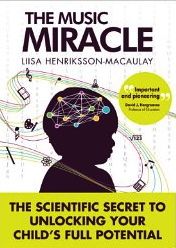<link href="https://cdn.sur.ly/widget-awards/css/surly-badges.min.css" rel="stylesheet">
<div id="surly-badge" class="surly__id_56779743 surly-badge_white-gradient" onclick="if(event.target.nodeName.toLowerCase() != 'a' && event.target.parentElement.nodeName.toLowerCase() != 'a') {window.open('https://sur.ly/i/parentingwithouttears.com/'); return 0;}">
<div class="surly-badge__header">
<h3 class="surly-badge__header-title">Content Safety</h3>
<p class="surly-badge__header-text">HERO</p>
</div>
<div class="surly-badge__tag">
<a class="surly-badge__tag-text" href="https://sur.ly/i/parentingwithouttears.com/"> parentingwithouttears.com </a>
</div>
<div class="surly-badge__footer"> <h3 class="surly-badge__footer-title">Trustworthy</h3> <p class="surly-badge__footer-text">Approved by <a href="https://sur.ly" class="surly-badge__footer-link">Sur.ly</a> </p> </div> <div class="surly-badge__date">2023</div>
</div>
 Studies show that when babies and children learn music, it is not just their well-being that improves: their parents gain better emotional well-being, too. The reason for this is obvious: when your child feels happier, more caring and more confident, this makes your parenting so much easier.
Studies show that when babies and children learn music, it is not just their well-being that improves: their parents gain better emotional well-being, too. The reason for this is obvious: when your child feels happier, more caring and more confident, this makes your parenting so much easier.
5. Clap pop music melodies
Even the simplest pop music melodies are full of syncopated, complex rhythms (here you can hear its African-American origins). Syncopation is a musical phenomenon where the notes fall between the beats.
This sounds more complex than it is, really. You can make the most of learning these complex rhythms the easy way by clapping the melody of any popular song, such as Yellow Submarine by the Beatles – an all-time kids' favourite. Clap along to what the Fab Four are singing: 'We (clap) all (clap) live (clap) in (clap) the (clap) yel (clap) low (clap) (sub (clap) ma (clap) rine (clap)' and so forth.
Try and clap exactly at the same time as you hear the singing. You can play a game with your child where you compete on who manages to keep the clapping going in the right places for longer.
6. Play the "Copycat Claps" game
Pre-school-aged children will greatly enjoy this copying game, where one claps a short rhythm (from four to eight claps) and the other copies it. Take turns in clapping and copying. Children enjoy especially being in charge so creating rhythms for you to copy is a sneaky way of doing the brain-boosting rhythm training.
Copying your claps, in turn, develops your child's listening skills – the very skills that are not just an essential part of any aural music theory exam, but proven to help your child's general listening skills too. This copycat game will greatly help your child on their schooling journey – and it is a lot of fun, too.
Liisa Henriksson-Macaulay is the founder of the early music education programme Moosicology and author of bestselling parenting title The Music Miracle: The Scientific Secret to Unlocking Your Child's Full Potential available from Amazon.
For more information on how you can help your child thrive through music training, please go to Moosicology.